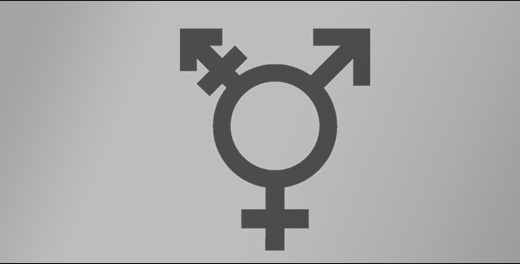Why it matters

I was talking to a teenage friend about my post on transgenderism. He is going to an arts school where there are several self-identified trans-gendered students. “I don’t understand what your problem is” - he says – “it’s not an issue any more.” He has no problem referring to his biologically female friend as a ‘he’ and he thinks that nobody should. The school is in the process of constructing gender-whatever (I really don’t know whether they should be referred to as gender-inclusive or gender exclusive) washrooms and that is all great, a sign of the enlightened, inclusive and supportive nature of the institution. Something that they can all be proud of, something that makes them not only different but better than other schools. Supporting transgenderism is a testament to their moral superiority.
My last post on the subject feels incomplete without an explanation. I feel a little weary talking so much about these gender subjects because in a way I really don’t care. The only thing that irks me about it is our attitude approaching it and the politics that grows out of it. I think I should explain my problem with the attitude.
Reality
What incensed me the most about the CBC panel discussion was the denial of reality, the embrace of the idea that we can completely disregard it. That there are no limits to what we can do and pretend. The attitude is not specific to this issue, either in the narrow sense of ‘transgenderism’ or in the wider one of the whole rainbow of gender rights. It is the general attitude of the left on a whole range of issues from climate alarmism through any number of social experiments to the reinterpretation of history, especially that of communism. It is based partly on postmodernist moral relativism; partly on the fascist/communist notions of the “triumph of the will,” the belief that reality is not what it is, but what we make, perceive or wish it to be.
Gender is a biological reality, not a social construct. It is coded into every single cell of our body. Denying this fact, pretending that it is not true, suggesting that it can be changed or that it is not a fundamental part of our identity is an experiment. A test to see what the political left can get away with. If the left can get away with making our biological identity a subject of political will, then is there anything they cannot get away with? It is not just a slippery slope, it is the bottom of the hill.
The denial of reality is not a good foundation for a good society. A good society cannot be built on lies, hopes and pretensions.
Morality
The moral impetus behind the drive for the acceptance of our ever expanding perception of what gender may be are based on very positive feelings: tolerance, compassion and acceptance. The political enablers of the gender right movement are playing on these emotions. The left is and has always been thriving on conflict and I believe this is just another one of the battlegrounds where they wish to carry the banners for their victims du jour. The question we have to ask is whether we have the best approach to dealing with the ‘problem.’ How far should we go accommodating it? Is it a good idea to encourage it? Is it good to promote the idea that sexual deviation makes you somehow special? That it is something you should be proud of? That if you have self-doubts, as most teenagers do, then offering a dubious way out of your doubts is a good idea?
I do not doubt for a second that these conditions are real, that some people are born gay or feel that they are in the wrong body, but I also believe that they are all somewhere on a continuum. There are very few clear cut cases. Where is the line between a tomboy and a man who was born into the wrong body? The line between sexual experimentation and full-fledged commitment to a non-straight sexual orientation? (I was always attracted to tomboys. That may be the latent homosexual in me….). I believe that the border zone on the sexual identity frontier is a vast territory and I am afraid that we tend to over-promote one direction for those in that zone.
Instead of the full-fledged embrace and even celebration of the ‘difference’ and making the whole of society bend over backward to accommodate it, wouldn’t it be better just to help them to live with and manage the inconveniences of their unfortunate condition? Wouldn’t that be the moral thing to do? Adaptation instead of confrontation? Blending in instead of standing out?
Compassion
I feel sorry for sexual deviants (in the statistical sense of the word). There is no condescension in these feelings, I don’t pity them, I just recognise that their life is more difficult than life is for the rest of us. If your pool of potential partners is just a few percent of the population, you will have to face a lot more rejection and your chances to find the right partner will be limited compared to the rest of us. Whatever your color on the rainbow is, you have to live with it. No matter how accepting and tolerant society becomes, reality will still make these ‘conditions’ a handicap. If you are transsexual or gay, you will never be able to look at your children as the shared continuation of the genes of you and your partner. Sexual deviations are not that different from a physical disability, they are conditions you have to work around and learn to live with. Pretending that this is not the case, pretending that sex-change is anything more than an elaborate pretension is not compassionate.
As a person, I have problems with lies, pretensions and the denial of reality. I have a problem with the active political promotion of gender variations. I have a problem with the disservice we are doing to our youth. As a libertarian, I support anybody’s right to be or pretend to be whatever or whoever they wish to be, but I oppose the divisive agenda of identity politics foisted on the whole of society. As a citizen, I have a problem with my tax dollars being wasted on something I disagree with.



